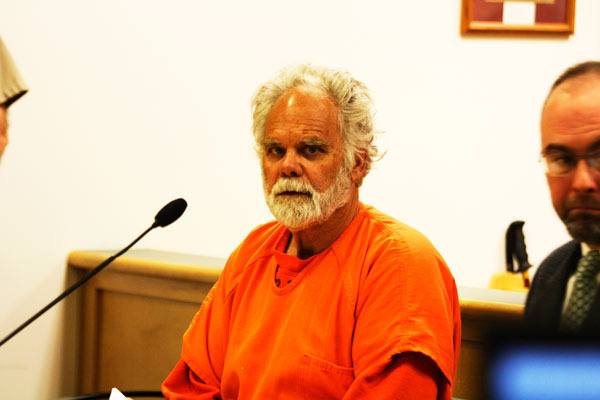A Greenbank man and former pizza business owner who was convicted of murdering his wife and throwing her tarp-wrapped body in a ravine behind their house will be returning to an Island County courtroom.
The state Court of Appeals upheld Robert Allan Baker’s first-degree murder conviction and the exceptional sentence but remanded him to superior court for re-sentencing because his attorney “completely abandoned him at sentencing,” according to the unpublished opinion released Nov. 9.
Baker and his wife, Kathie, owned the now-defunct Harbor Pizzeria in Freeland. They had met in the Antarctic, where they both worked at a station for scientific research.
After her employer reported her missing in June of 2012, deputies with the Island County Sheriff’s Office investigated and discovered her body hidden behind the couple’s Greenbank home and blood evidence throughout the house.
In court, Island County Chief Criminal Prosecutor Eric Ohme argued that the evidence showed Baker hit his wife in the head with a hammer while she was sleeping and strangled her.
Baker’s motive for the murder was that his mistress was arriving the next day, Ohme argued. The woman thought that Baker was separated from his wife; Baker believed that Kathie was going to be out of state at the time.
The jury found Baker, 65, guilty of first-degree murder with a deadly weapons enhancement and aggravating circumstances.
Judge Alan Hancock agreed with the prosecutor that Baker deserved an exceptional sentence because the victim, who was sleeping in her bed when attacked, was “particularly vulnerable” under the law. He sentenced him to 52 years in prison — essentially a life sentence.
At the sentencing hearing, Baker’s attorney, Tom Pacher, “inexplicably failed to appear,” the opinion states. Another attorney, Matt Montoya, appeared with Baker instead. He gave the court no explanation for Pacher’s absence and said nothing on Baker’s behalf. Baker declined to make any comment.
Baker appealed, arguing that the deputies violated his Miranda rights, the judge improperly imposed an exceptional sentence and that “his attorney’s complete silence at sentencing constitutes ineffective assistance.”
The court affirmed the conviction, finding that the deputies didn’t violate his rights and that the exceptional sentence was warranted.
The court, however, assumed prejudice because Baker’s attorney abandoned him at sentencing.
“We see no strategic reason for an attorney’s complete silence at this sentencing under the facts presented here,” the opinion states. “At the bare minimum, faced with the state’s request for what amounts to a life sentence, any competent attorney would have argued against an exceptional sentence and the length of the sentence.”
As a result, Baker will return to be re-sentenced before Judge Hancock “with competent counsel to assist him.”
Baker can file a motion for reconsideration or petition the state Supreme Court for review.



